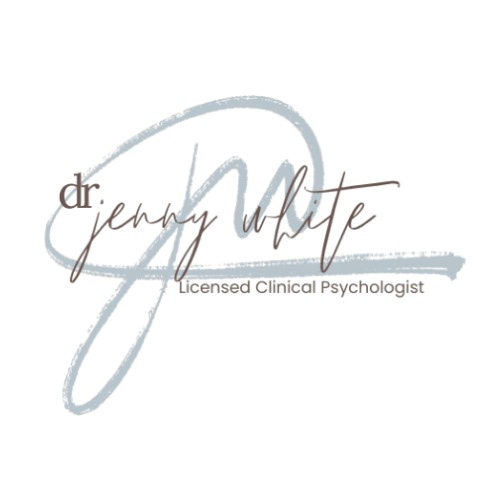Grounding Methods: Grounding Yourself During Difficult Times
There are many reasons you may be feeling untethered. Whether it's general anxiety about your daily life, the impact of the political climate, health concerns for yourself or loved ones, work stress, or any combination of these triggers, it can leave you feeling overwhelmed and disconnected.
DISCLAIMER: I am a licensed clinical psychologist, and the information provided here is for general informational and educational purposes only. While I aim to share helpful and thoughtful content, reading this blog does not establish or imply a therapist-client relationship between us.
If you are experiencing a mental health crisis, please seek immediate help from a licensed professional or contact emergency services in your area. This blog should not be a substitute for professional mental health care or personalized guidance.
For personalized support or therapy services, please reach out directly to a licensed mental health provider in your area.
Feeling untethered can be deeply uncomfortable. You may feel as though you are floating without direction, isolated, or out of touch with yourself and the world around you. This sense of disconnection can exacerbate existing mental health struggles, worsening anxiety and depression. It may lead you to withdraw from others, struggle with focus, or experience a depletion of energy.
Your body often bears the weight of these emotional burdens. You might feel exhausted from trying to manage your emotions—whether by suppressing them or feeling overwhelmed by their intensity. Tension may settle into your muscles, making it difficult to relax. Your mind may feel frazzled and unfocused, making it challenging to be present and engaged in your daily life.
You may be acutely aware of these experiences, or perhaps reading this is the first time you’re recognizing them in yourself. If this resonates with you, there are ways to find stability by reconnecting with yourself, nature, and your community.
Connecting with Yourself
Practicing mindfulness and journaling are effective ways to ground yourself and foster a sense of inner connection. One simple but powerful practice to try is a body scan meditation.
How to Do a Body Scan Meditation:
Find a quiet place where you can sit or lie down comfortably for 3–5 minutes.
Set a timer if you’d like, so you can focus without worrying about the time.
Close your eyes or soften your gaze on a fixed point.
Take a few deep breaths, inhaling through your nose and exhaling through your mouth.
Bring your attention to your feet and toes, noticing any sensations without judgment or the need to change them.
Gradually shift your attention upward through your body—your legs, torso, arms, shoulders, and head—spending a few breaths on each area.
Conclude with a few deep breaths, gently bringing your awareness back to the present moment before opening your eyes.
The goal of this exercise isn’t to change anything—just to observe and acknowledge what you feel. This practice can help you cultivate awareness and a sense of connection with your body.
Connecting to Nature
During uncertain times, reconnecting with nature can be incredibly grounding and healing. Spending time outdoors can help bring a sense of calm and perspective. A simple way to engage with nature is through a sensory grounding exercise.
How to Do a Sensory Grounding Exercise:
Step outside and find a quiet spot.
Engage your senses:
What do you hear? Birds chirping? Leaves rustling?
What do you smell? Freshly cut grass? Rain on the pavement?
What do you see? The intricate patterns of leaves? Changing shades in the sky?
What do you feel? The crunch of leaves underfoot? The warmth of the sun on your skin?
If possible, take off your shoes and stand barefoot on the earth. Focus on the feeling of the ground beneath you, noticing how it supports you.
If your mind wanders, gently bring your attention back to your senses and the experience of being in nature.This practice can help create a sense of stability and connection, reminding you that you are part of something larger.
This practice can help create a sense of stability and connection, reminding you that you are part of something larger.
Connecting to Your Community
When facing uncertainty or distress, it’s easy to retreat inward and feel isolated. However, connection with others can be a powerful antidote to loneliness. Finding a supportive community—whether among family and friends, a therapeutic support group, a shared-interest group, or an online community—can provide comfort and validation.
The key is to seek out spaces where you feel heard, understood, and supported. Engaging with others can help shift your perspective, reduce feelings of isolation, and remind you that you’re not alone in your struggles.
Seeking Professional Support
These practices are not always easy, especially when you’re already feeling overwhelmed. If you find it challenging to ground yourself or navigate difficult emotions, reaching out for professional support can be invaluable. Therapy provides a safe space to explore your experiences, develop coping strategies, and reconnect with yourself in meaningful ways.
If you’re looking for guidance or a place to practice grounding techniques, I’d love to help. You don’t have to navigate this alone—support is available, and healing is possible.
Ready to feel more grounded? Contact Dr. Jenny today.







